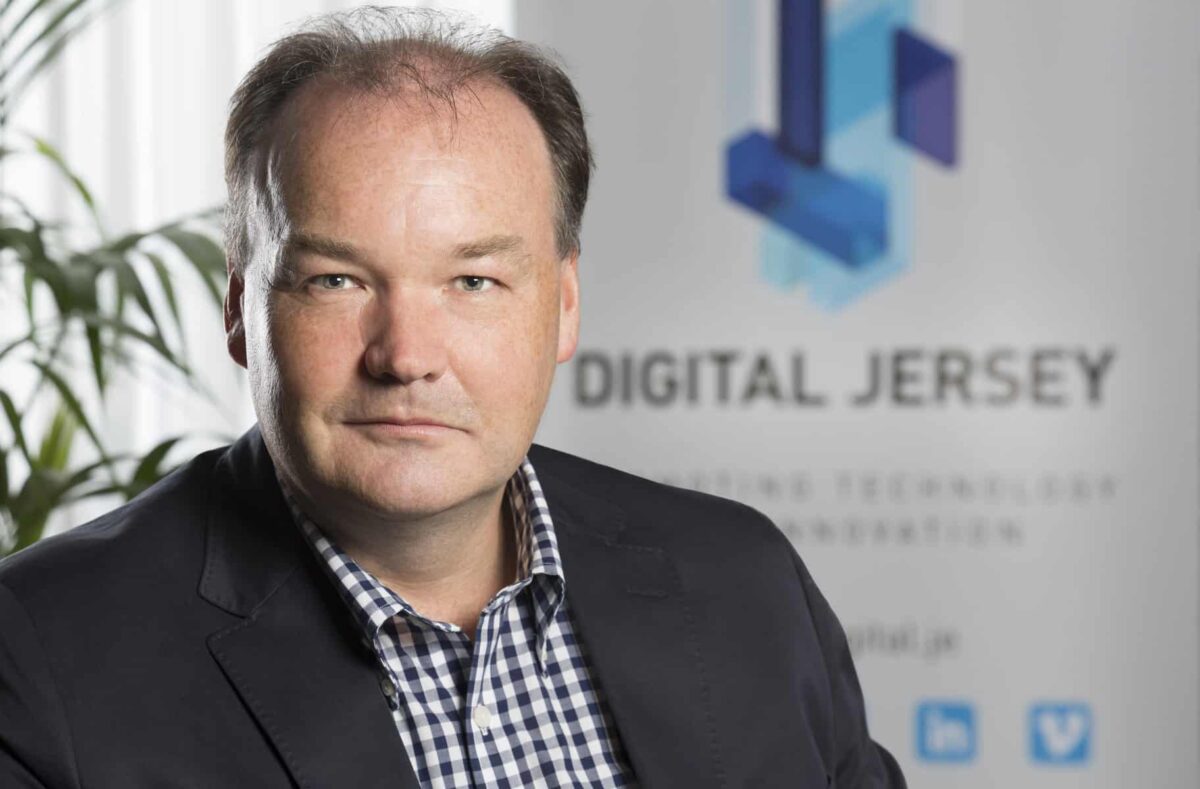
Jersey is a small island that dreams big. 50 years ago who would have thought that Jersey would become a world-class international finance centre? It’s clear that when this little Island turns its hand to something, it does so with gusto – and gets results. The same can happen with Jersey in the digital sphere.
There are already many positive things happening on Jersey’s digital landscape. The Island is exhibiting qualities of digital excellence, based on our digital industry’s engagement with the local community, a growing base of innovative startups across a range of cutting edge fields including fintech and digital health, and a proactive, long-term approach to innovation at a governmental level.
An example of energetic grassroots work can be seen in the success that is National Coding Week. I must confess I thought this was a UK government based initiative given its impact and scope, so to find that it was created and launched in Jersey only consolidates my overall impression of the Island as a jurisdiction that consistently strives to punch above its weight. The synergy between mentors and businesses giving their time for initiatives such as this has built the foundations of a strong digital culture.
This community collaboration is also evident in the excellent digital skills and education courses run through Digital Jersey; these courses approach digital education in a truly collaborative way, understanding that we need to train young islanders (and older ones at that!) to be digitally literate for all jobs and enterprises, not just the more obvious ones. The skills gap that we currently have in the digital space needs to be addressed in both the short and long term, and education has a central part to play in this.
Alongside the strong community work being undertaken to engage all islanders in Jersey’s digital development, I’m impressed with the positive approach Jersey’s government is taking towards innovation. The commissioning of the recent Innovation Review demonstrates the government’s commitment to the future of Jersey’s digital sector among others. We can’t do everything, but we must focus on what we can do well to secure our future in the international marketplace. That the government of Jersey is not falling victim to the short termism of politics on this matter is deeply encouraging for the Island’s digital future.
The third essential part of the equation is the promising digital industry that already exists in Jersey; for an Island this size to have such impressive communications networks alongside several large tech firms providing solutions to heavyweight global clients is significant. We’re also seeing innovative startups and more established businesses already exporting their services in high growth areas such as digital health and fintech. This is following the established pattern from the financial services industry showing, yet again, that Jersey is a place that businesses can not only grow but also use as a base from which to expand internationally.
The promising approach from Jersey’s industry, government and community shows us that we need to work collaboratively to capitalise on what we do well and see clearly those areas where we can do even better.
Looking towards Jersey’s future, what strikes me is the need to rekindle our ambitious spark. We mustn’t forget that it was our entrepreneurial spirit as an Island that created our world-leading financial sector – and we must get that hunger back again in the digital sphere to ensure that the findings of the Innovation Review are acted on, and to secure Jersey’s continued competitiveness on the global stage.
Digital can be used, and is already being used, to consolidate our existing offering as a jurisdiction. This is especially true in the field of fintech, where we have a clear opportunity to diversify our economy while also building on our strengths as a leading finance centre, but it extends to every other pillar of our economy too. It’s encouraging that across crucial departments, from the JFSC and Jersey Business to Visit Jersey, the value of digital is acknowledged and the desire to innovate keenly felt. Digital Jersey fully understands that our remit is to make sure that everyone has a digital agenda – and ensure Jersey is receptive and ready for this.
Another key component of Jersey’s future in the digital sphere is our connectivity. The digitised global marketplace means that geography becomes less and less relevant – what matters is connectivity, which we have in abundance with the new fibre rollout and superfast connectivity to all the major off-island hubs. International businesses can operate from Jersey and easily achieve their desired global reach.
Where Jersey’s geographical strength does come in is our proximity to London, which enables close links with the UK, and proactive discussions with Digital Catapult, the UK’s equivalent to Digital Jersey. The UK is obviously much larger as a jurisdiction, which means more resources but also more potential obstacles in implementing innovation. Coming from the UK, I really value the unique possibility we have in Jersey to get all the right people in one room, meaning we can effect joined up change much more quickly and efficiently than in larger jurisdictions.
We can’t compete with Silicon Valley in terms of their numbers and range, so we need to get smart and think about the digital areas which apply to Jersey specifically, and focus on doing a select number of things well. We need a data driven approach to clearly identify and prioritise the areas that need investment and support as we take our next steps.
We also need to think what our measurable success criteria are – ultimately, the creation of high value jobs and exportable services are where Jersey’s digital space can really perform.
Of course it’s easy to talk the talk, what’s harder – and worth more – is the delivery. But Jersey, with its strong economy and pool of entrepreneurial and ambitious people, is in a far better position than most to become a globally respected digital hub. There’s no reason at all why we can’t, and every reason why we should.



